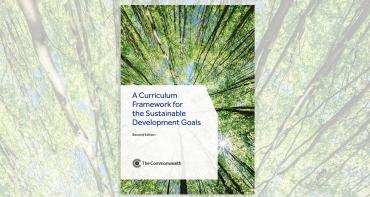Blog by Katherine Kennedy, Head of Climate Change, at the second day of the World Sustainable Development Summit in Delhi.

Blog by Katherine Kennedy, Head of Climate Change
Day two at the World Sustainable Development Summit in Delhi and my focus switches to renewable energy. Particularly Solar Power. The widespread uptake of this technology is critical if we are to truly begin to decarbonise and meet all of our international targets.
Over lunch I meet with Upendra Tripathy, Director-General of the International Solar Alliance (ISA) and his Senior Advisor Shishir Seth. Not only is it an honour to meet with these gentlemen, it is always a pleasure to work alongside professionals who demonstrate such personal commitment to the huge challenge of climate change.
Brainchild of the Government of India, the International Solar Alliance is a relatively new organisation that was established following the 2015 Paris Agreement on Climate Change. The International Solar Alliance recognises that solar energy provides solar-rich countries, lying between the Tropics of Cancer and Capricorn, with an unprecedented opportunity to bring prosperity, energy security and sustainable development to people.
The ISA works with these countries to overcome obstacles that stand in the way of massive scale-up of solar energy.
Simple Objectives. Fantastic Ambitions.
I am excited about the prospects that exist for close collaboration between International Solar Alliance and The Commonwealth. We can work with the ISA to support the process of getting relevant Commonwealth member countries signed up to make solar power widely available and accessible to their communities.
I am reminded of some work in The Gambia in 2014. I was at a fish-landing site in the capital Banjul. The facilities for refrigerating the catch prior to market were so very limited. Fisheries is a mainstay of The Gambian national economy and effective refrigeration facilities are fundamental to supply chain success. Access to reliable refrigeration is critical for such economies to thrive. Solar power has such potential to provide countries with a step change in energy security.
It will be very interesting to see how the ISA will enhance energy security and down the line positive economic impact. Over the next decade I hope there will be a transformation.
Here at The Commonwealth we want to see the best deal for our member countries in the conversion to low carbon technologies.
Tomorrow I leave Delhi, and head to Mauritius for the Steering Group Meeting of our Climate Finance Access Hub. I will be taking the ideas generated with the International Solar Alliance directly to our discussions.



